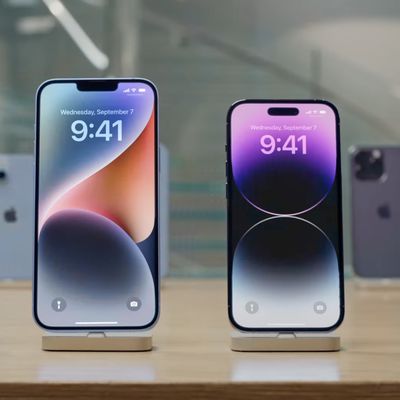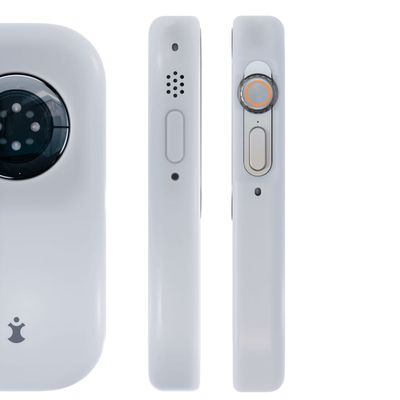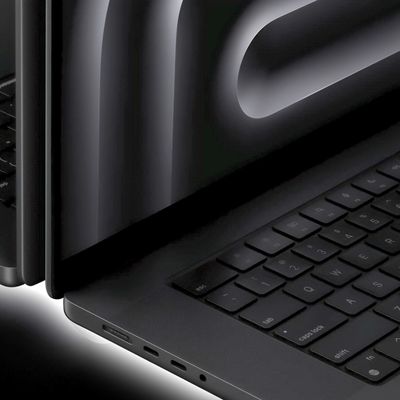Apple Watch Users More Likely to Have Medical Procedures on Their Heart, Study Finds
Apple Watch users with an irregular heartbeat are not visiting doctors more often, but they are more likely to be treated with a heart procedure, a study has found (via The Verge).

The study examined 125 people with atrial fibrillation and a heart-monitoring wearable, such as the Apple Watch, who visited the University of Utah Health during a 90-day period, and compared them to a group of 500 people with the same condition and similar characteristics, but no wearable.
The results of the study showed that users with heart-monitoring wearables are not more likely to visit a doctor about a health condition with their heart. In spite of this, users with a wearable and a heart condition such as atrial fibrillation are more likely to undergo medical procedures.
Specifically, this group of wearable users was more likely to undergo an ablation, which is a medical procedure that seeks to restore a normal heartbeat.
It is not clear if the people in the study who wore wearables and had ablations had worse symptoms than the control group and so needed the treatment as a result, or if the wearables encouraged them to see a doctor and have the procedure sooner.
It may simply be the case that people with heart conditions who decide to wear an Apple Watch do so due to general concerns about monitoring their health. It is also possible that wearable users could see their device detecting an abnormal heartbeat more often and therefore they worry that their atrial fibrillation is getting worse, even when it is not.
The Apple Watch and similar health-monitoring wearables are the focus of a growing number of studies in the medical field, where they have been used to investigate COVID-19, frailty, cognitive health, heart failure, asthma, and more.
Popular Stories
Apple will adopt the same rear chassis manufacturing process for the iPhone SE 4 that it is using for the upcoming standard iPhone 16, claims a new rumor coming out of China. According to the Weibo-based leaker "Fixed Focus Digital," the backplate manufacturing process for the iPhone SE 4 is "exactly the same" as the standard model in Apple's upcoming iPhone 16 lineup, which is expected to...
Apple typically releases its new iPhone series around mid-September, which means we are about two months out from the launch of the iPhone 16. Like the iPhone 15 series, this year's lineup is expected to stick with four models – iPhone 16, iPhone 16 Plus, iPhone 16 Pro, and iPhone 16 Pro Max – although there are plenty of design differences and new features to take into account. To bring ...
Israel-based mobile forensics company Cellebrite is unable to unlock iPhones running iOS 17.4 or later, according to leaked documents verified by 404 Media. The documents provide a rare glimpse into the capabilities of the company's mobile forensics tools and highlight the ongoing security improvements in Apple's latest devices. The leaked "Cellebrite iOS Support Matrix" obtained by 404 Media...
If you have an old Apple Watch and you're not sure what to do with it, a new product called TinyPod might be the answer. Priced at $79, the TinyPod is a silicone case with a built-in scroll wheel that houses the Apple Watch chassis. When an Apple Watch is placed inside the TinyPod, the click wheel on the case is able to be used to scroll through the Apple Watch interface. The feature works...
A widespread system failure is currently affecting numerous Windows devices globally, causing critical boot failures across various industries, including banks, rail networks, airlines, retailers, broadcasters, healthcare, and many more sectors. The issue, manifesting as a Blue Screen of Death (BSOD), is preventing computers from starting up properly and forcing them into continuous recovery...
Apple in 2025 will take on a new compact camera module (CCM) supplier for future MacBook models powered by its next-generation M5 chip, according to Apple analyst Ming-Chi Kuo. Writing in his latest investor note on unny-opticals-2025-business-momentum-to-benefit-509819818c2a">Medium, Kuo said Apple will turn to Sunny Optical for the CCM in its M5 MacBooks. The Chinese optical lens company...





















